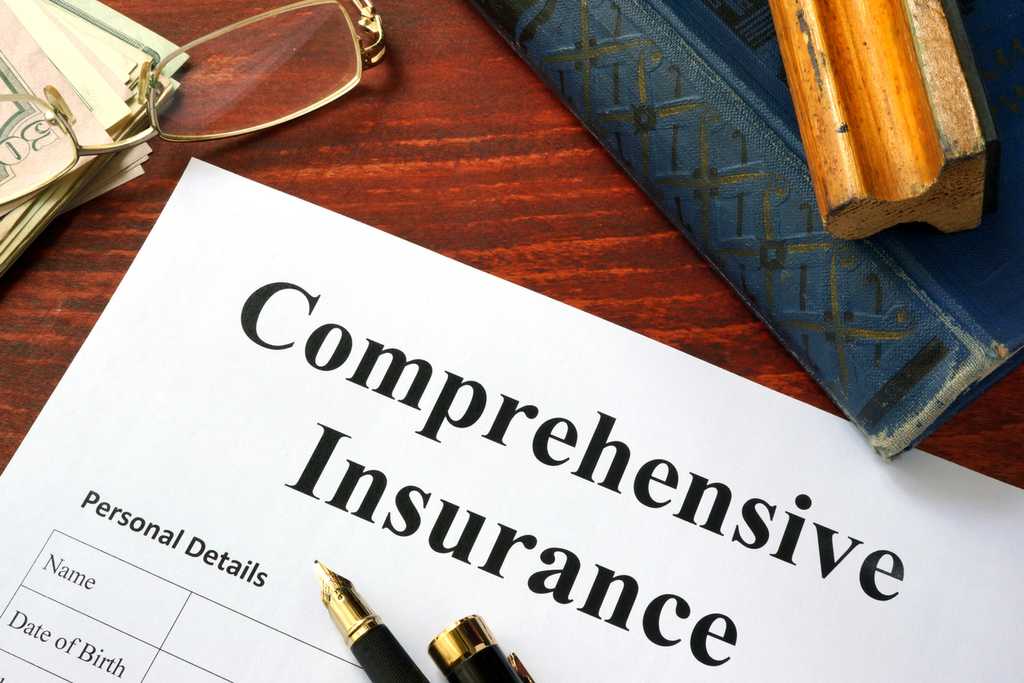Besides accidents, there are lots of different situations that can damage your vehicle. For instance, vandalism, theft, fire, and falling tree branches can all cause expensive damages that collision insurance doesn’t cover. Fortunately, comprehensive insurance will protect against certain non-collision incidents and provide peace of mind.
While most states require you to buy liability insurance, comprehensive insurance is usually optional. However, purchasing comprehensive car insurance can come in handy, and it’s a good investment for many drivers. Read ahead to learn about the benefits of comprehensive insurance, what it covers, how much it costs, and who needs it.
What Does Comprehensive Insurance Cover?
Comprehensive insurance covers most non-collision incidents that can cause damage to your vehicle. Common examples of covered perils include:
- Vandalism
- Theft
- Fires
- Floods
- Falling objects, like branches or rocks
- Weather events, such as hail, lightning, and earthquakes
- Hitting an animal
As the name suggests, comprehensive insurance is pretty comprehensive. The only things that comprehensive insurance does not cover are damage sustained in accidents with other drivers and medical expenses if you or one of your passengers gets injured in a covered incident.
How Does Comprehensive Insurance Work?
So, you’ve bought comprehensive insurance and your vehicle was damaged by a covered peril. How do you make a claim? Like other types of insurance, you start by contacting your insurance company.
Once you’ve made your claim, a representative may want to check out the damage personally. If the claim handler decides that your damage is covered, great! After a period of time the company will reimburse you for nearly all of the cost. The one thing you will still have to pay is the deductible.
Let’s say your car is damaged in a wildfire, and the estimated repair cost is $3,500. The policy you agreed to has a deductible of $500, which you must pay yourself. In this case, your insurance company would then write you a check for the remaining $3,000.
In the case of a comprehensive insurance claim, you can usually take your vehicle to any repair shop of your choice to get the vehicle fixed. Some insurance companies will even help you find a reputable repair shop in your area.
The only downside of filing a comprehensive insurance claim is that your premium will likely increase afterwards. The amount that your rate will increase depends on the severity of the situation, the number of claims you’ve recently filed, and your total payout.
Comprehensive Insurance vs. Collision Insurance
The main difference between comprehensive insurance and collision insurance is what they cover. Collision insurance only covers accident damage, whereas comprehensive insurance only covers damage that is not sustained in an accident. Collision insurance also covers hit-and-runs, roll overs, and collisions with stationary objects, such as a lamp post.
Like comprehensive insurance, collision insurance is an optional policy. According to the National Association of Insurance Commissioners, the average cost of collision insurance in the United States is $377.62 per year, while comprehensive insurance costs an average of $167.91 per year.
However, keep in mind that comprehensive and collision insurance premiums are personalized based on factors like your driving history, the age of your vehicle, your deductible, and your coverage limits.
Should I Get Comprehensive Insurance?
The choice to buy comprehensive insurance is usually up to you, although in some cases, you are required to buy it. If you lease or finance your vehicle, your lender may require that you have comprehensive insurance. Otherwise, if you live in an area with higher rates of extreme weather events or crime, buying comprehensive insurance may be a smart choice.
You should estimate the value of your car before purchasing comprehensive insurance. As a general rule, if your deductible plus six month’s worth of insurance premiums is equal to or greater than the value of your vehicle, comprehensive insurance is not worth it. If your deductible alone is equal to the value of your vehicle, it’s definitely not worth it.
As your car ages, this math will change. If you currently have comprehensive insurance, it’s a good idea to occasionally reassess whether to cancel it based on the depreciating value of your car.
Frequently Asked Questions
Is comprehensive insurance the same as full coverage insurance?
No, comprehensive insurance is one policy that is included in full coverage insurance. The terminology can be a bit vague, so think of comprehensive insurance as a slice of the larger full coverage pie. Collision insurance, liability insurance, and medical payments insurance are also included in a full coverage policy.
Do I need comprehensive insurance for an older vehicle?
It depends. The less your vehicle is worth, the less it makes sense to buy comprehensive insurance. Cars depreciate in value over time, so you should calculate the value of your vehicle first. However, if you own an older luxury vehicle or one that is expensive to fix, it could be worth having comprehensive insurance.
When should I drop comprehensive insurance?
It’s all about the value of your car and the cost of your insurance. As mentioned earlier, if your deductible plus six month’s worth of insurance premiums is equal to or greater than the value of your vehicle, you may not want to buy comprehensive coverage. You can also use the 10% rule: if one year’s worth of monthly premiums exceeds 10% of your car’s value, comprehensive insurance won't be worth the cost.

